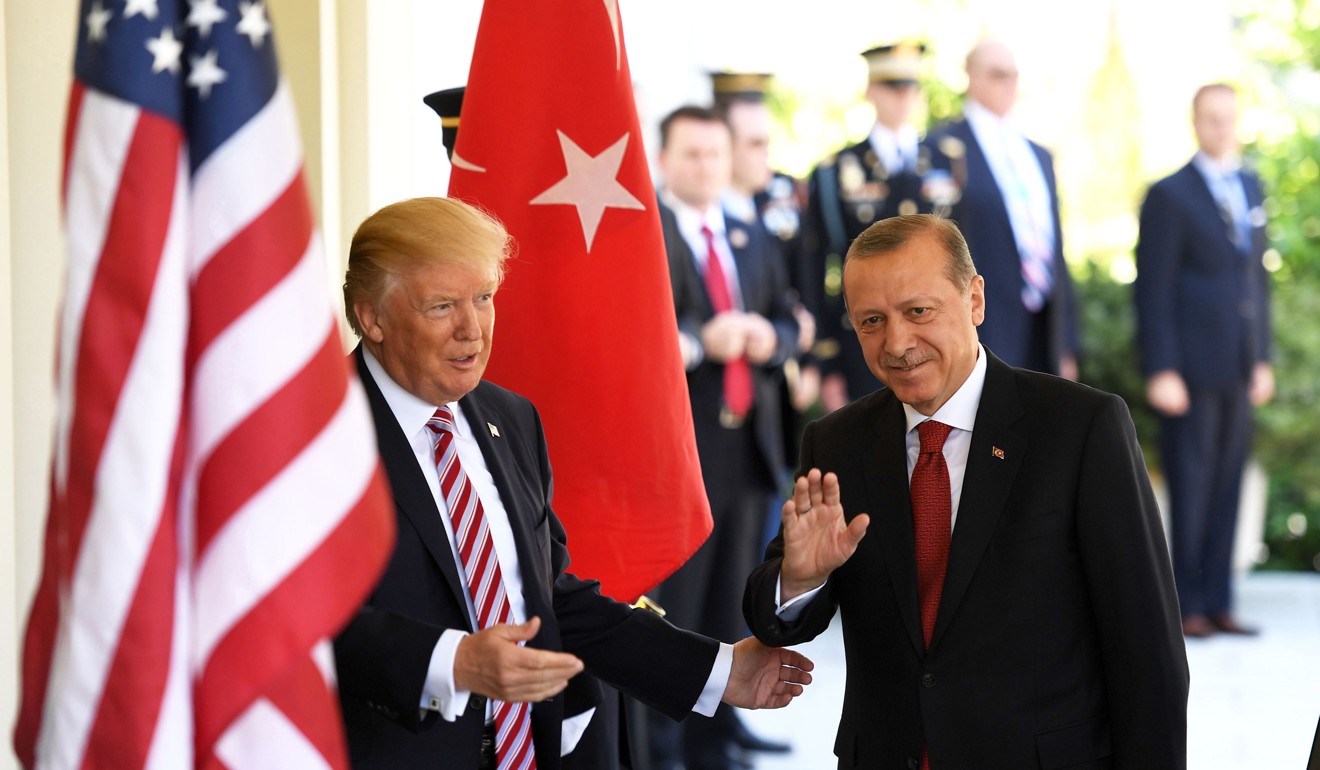
Turkish banker convicted over scheme to avoid Iran sanctions
A Turkish banker was convicted in New York on Wednesday in connection with a massive scheme to help Iran evade US sanctions, in an explosive case that strained ties between Ankara and Washington.
A jury found Mehmet Hakan Atilla, deputy chief executive of Turkish lender Halkbank, guilty of five counts of bank fraud and conspiracy.
He was cleared of one count of money laundering.
The federal trial hinged on the testimony of well-connected Turkish-Iranian businessman Reza Zarrab, who became a government witness after admitting his involvement in the multibillion-dollar gold-for-oil scheme to subvert US economic sanctions against Iran.
His testimony implicated former Turkish ministers and even President Recep Tayyip Erdogan in the scheme, and identified 47-year-old Atilla as a key organiser.
Zarrab, a prominent gold trader, agreed to testify after striking a deal to plead guilty to violating US sanctions.
Before the trial, Erdogan reportedly pressed US President Donald Trump to quell the investigation and strongly criticised Washington, calling the case a “plot” aimed at hurting Turkey.

Acting US Attorney Joon Kim said the case was a warning to anyone who would violate US sanctions.
“Foreign banks and bankers have a choice: you can choose wilfully to help Iran and other sanctioned nations evade US law, or you can choose to be part of the international banking community transacting in US dollars. But you can’t do both,” Kim said in a statement. “If you lie repeatedly to US Treasury officials and fabricate documents – all as part of a secret scheme to smuggle billions of dollars in Iranian oil money past the US sanctions net – as Atilla did, then you should be prepared for the consequences.”
Much of the case focused on Zarrab, 34, a key figure in a 2013 Turkish corruption scandal in which he allegedly bribed four ministers to facilitate sanctions-busting trade and other deals.
Charges against him were ultimately dropped, but he was arrested in Miami in 2016, and eventually agreed under pressure to testify in the US case over violating Iran sanctions in a plea bargain.

In testimony in a New York court on November 30, he said he was told that Erdogan, as prime minister in 2012, and treasury minister Ali Babacan had given “instructions” to two public banks to take part in the scheme.
Zarrab also said he paid tens of millions of dollars’ worth of bribes to economy minister at the time, Zaref Caglayan, to facilitate illegal gold transactions with Iran.
Erdogan has repeatedly rejected the allegations, saying Turkey did not violate the US embargo on Iran and that political rivals were behind the case.
“The case is not a plot against America, it’s a plot against Turkey,” Erdogan told supporters in a speech on December 5. “The case has nothing to do with law, justice or trade, it’s an acrobatic spectacle.”

.png?itok=arIb17P0)